It’s only one week into the new school year but pupils will already be well into the swing of things.
The summer holidays are over, teaching has begun and the new school uniforms are probably already dirty.
But what does the first few weeks of term hold for the young pupils who are just starting out on their school journey? And what can parents expect their children to be learning?
We took a visit to St Clement’s Primary School in Dundee to speak to two primary one teachers, Rachel Steele and Vikki Sidowra, to find out more.
Setting out expectations
The new St Clement’s primary ones have been preparing for their first day at the big school since the April holidays, with teachers Rachel and Vikki visiting them at nursery and the school hosting them at the play area.
Despite the gentle introductions, the first weeks of school can be a daunting experience and the early focus for teachers is to make sure the youngsters know what to expect and how to behave.
Rachel, who teaches a P1/2 class, said: “The first fortnight you are focusing heavily on the expectations of St Clement’s, the values that we stand for and what the staff around the school expect.
“I’ve asked them what they expect from me as their teacher and what they think I expect from them and from there we were able to put together our class rules.
“They got a wee tour of the school as well to see what sort of environment they will be in and it’s getting them comfortable in that.”
Vikki added: “They’re like sponges when they are in primary one, they do take in a lot but you have to set the standard and expectations from day one.
“They need to know that the classroom is a place for learning. But it’s also about us getting to know them – can they count to 10 or write their name?”
How soon do they learn to read and write?
It may only be the first full week term but the new primary ones are already getting to know the basics of learning how to read.
At St Clement’s the youngsters are introduced to Fred the frog – a friendly face that will help teach them to sound out words.
Rachel explained: “Fred is a little frog that helps the kids learn to read. He doesn’t speak in sentences or words, he speaks in sounds.
“So there will be a lot of Fred talk at the beginning of primary one and it’s about getting the kids to learn the sounds (of words).
“He’s a little mascot that the kids all like. He talks about the adventures he goes on or what he has in his fridge and cupboard.”
Is there any play based learning?
The transition to school from nursery marks the switch to a more formal way of learning and the young pupils are expected to listen and learn from their teacher.
But it’s also important for the teachers to keep the youngsters engaged and this is why Vikki and Rachel have to plan for a full day of activities.
Vikki said: “There has to be balance. They can learn so much through play but we still have to have direct teaching input with the children at the start.
“You have to lots of activities because as keen as they are to learn, you have to keep it short because of their attention span.
“If you were to set a primary seven piece of work, that could take them 45 minutes and you could walk around the classroom and speak to them and help.
“Where as the activities in primary one are shorter – it’s very different.”
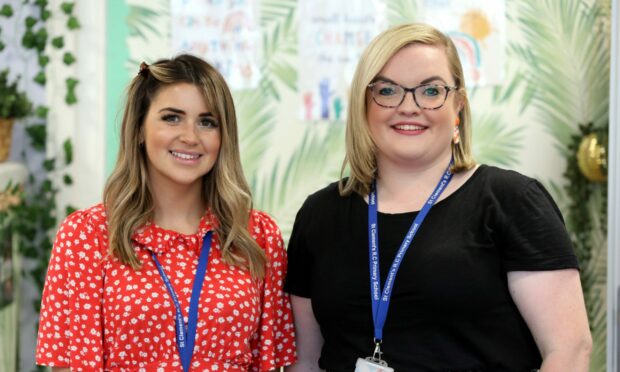
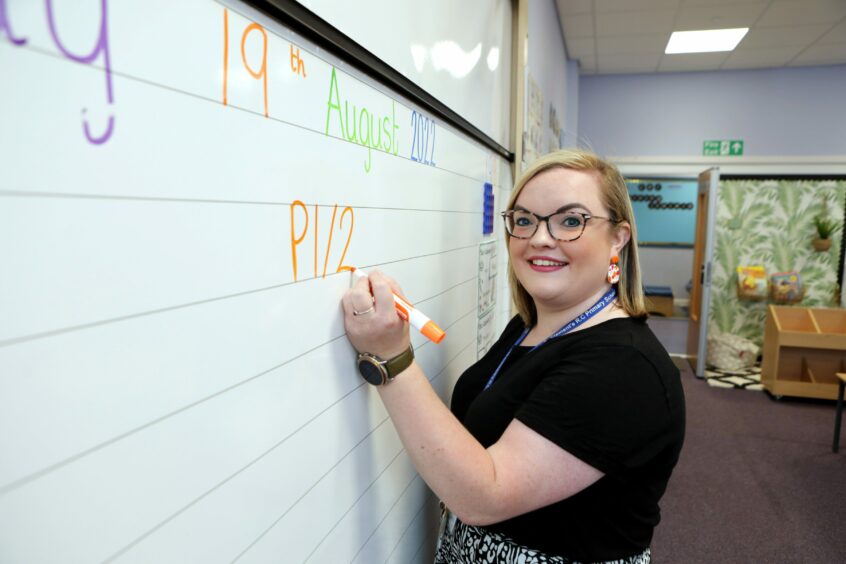
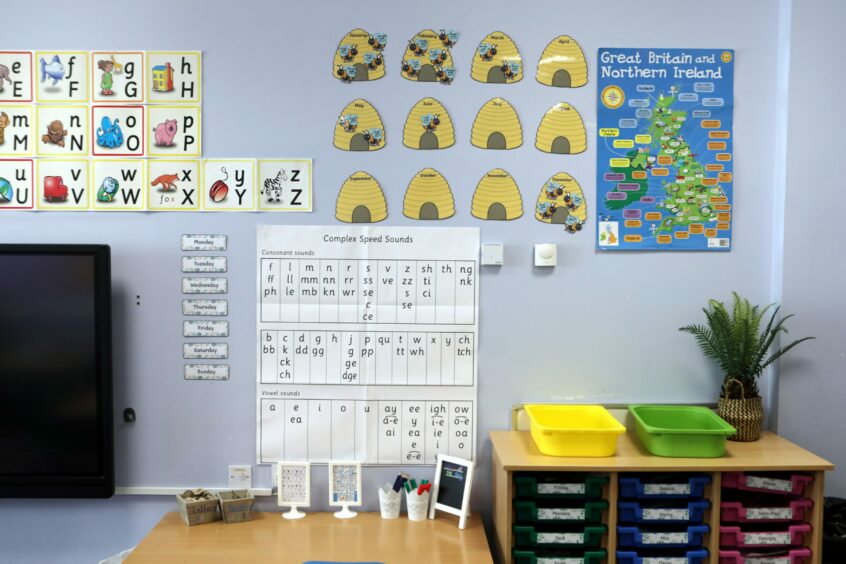

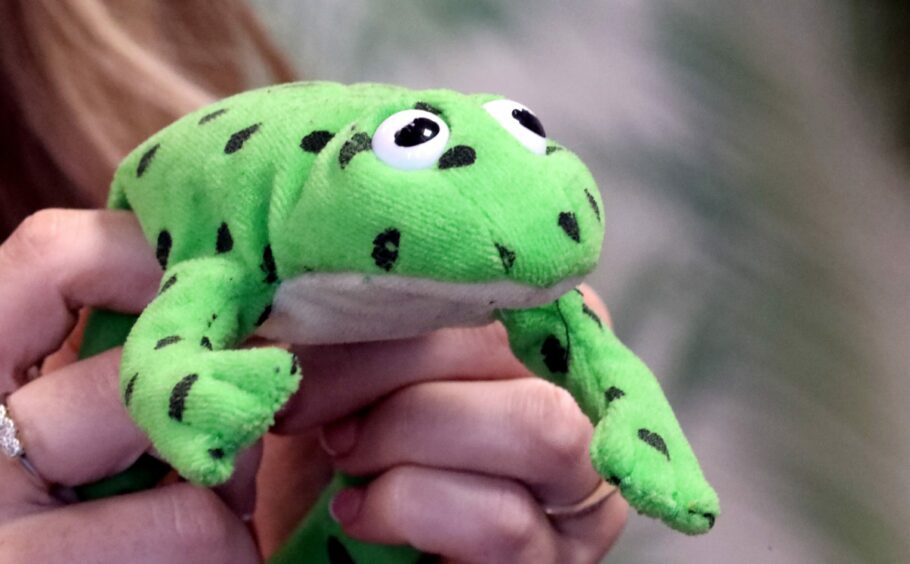
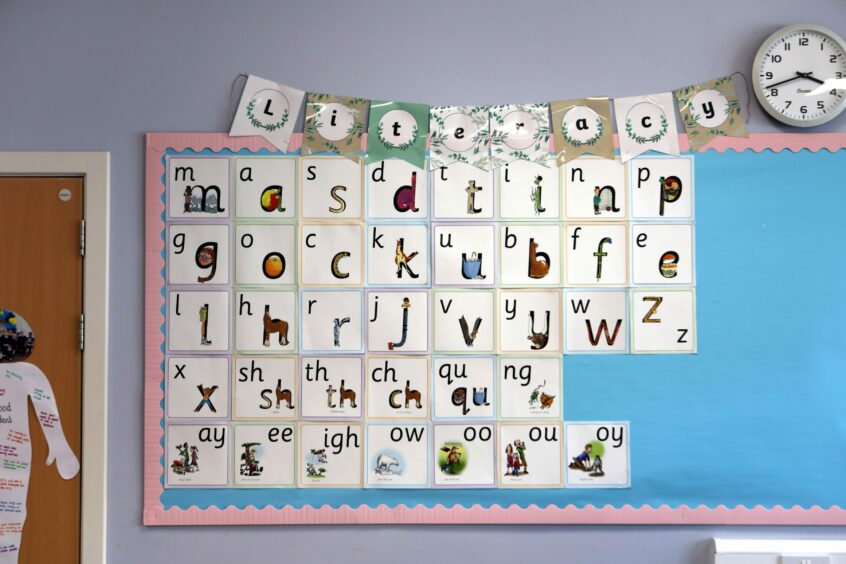

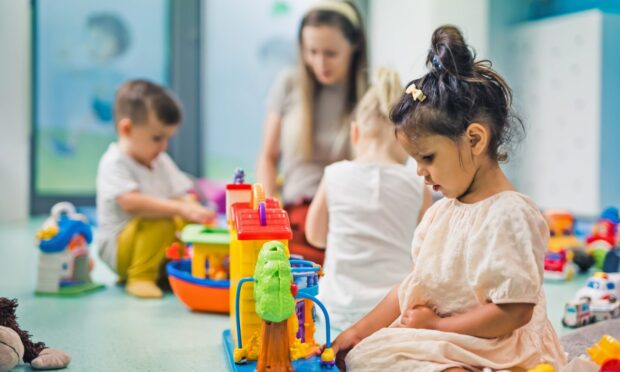


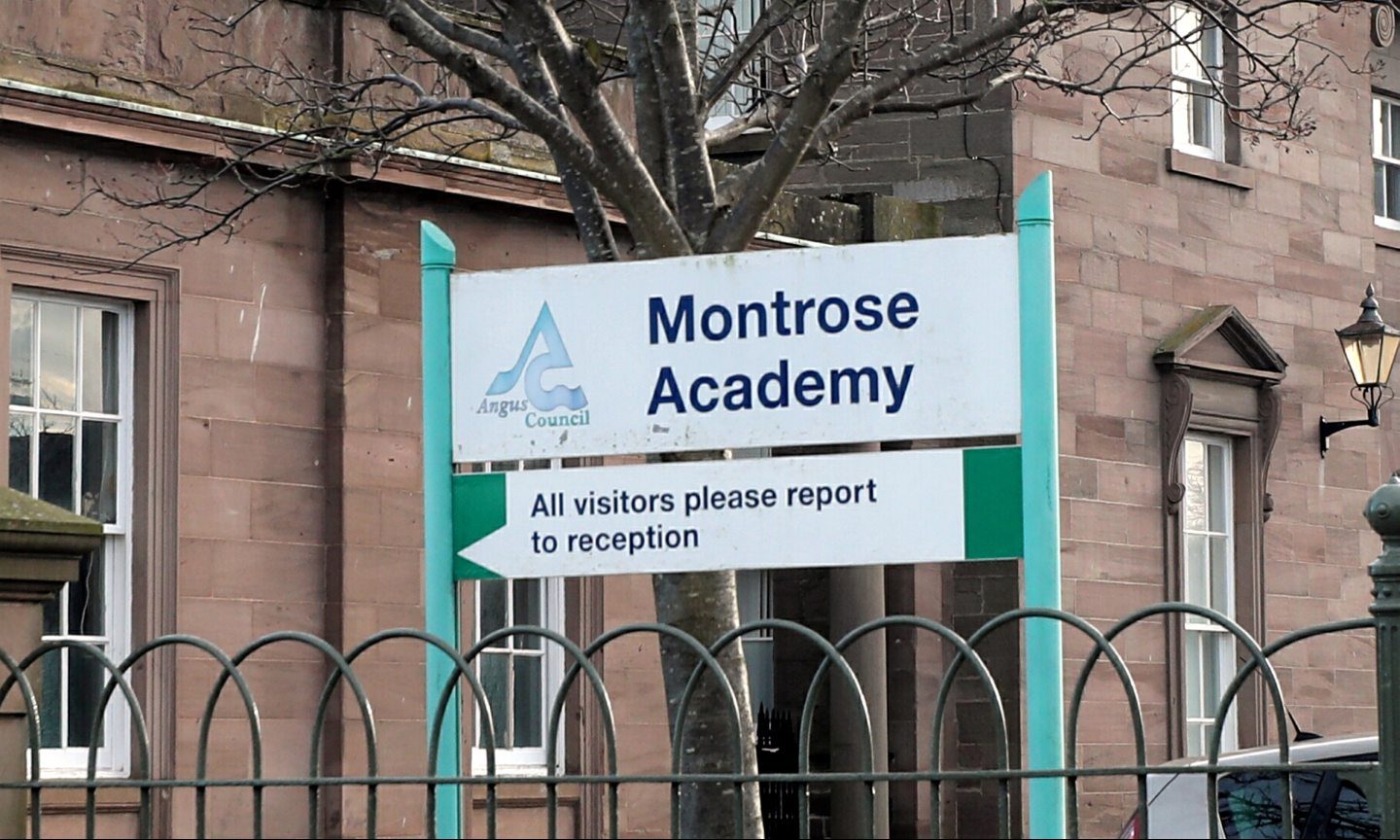

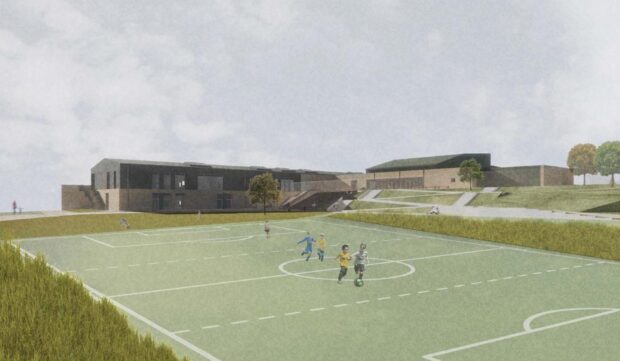
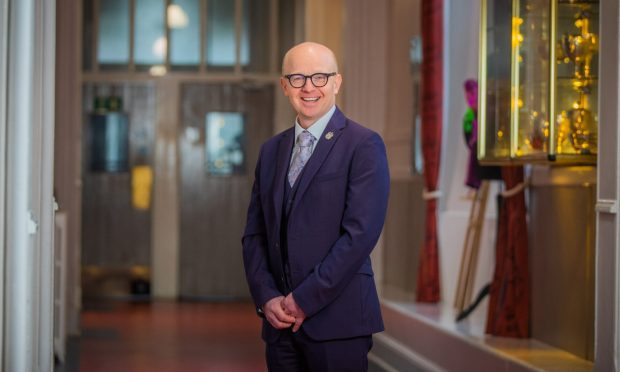



Conversation